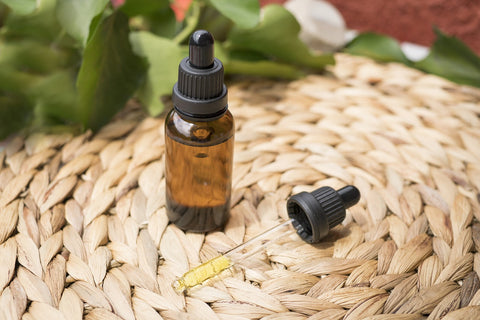The ongoing exploration of cannabidiol (CBD) presents new vistas in treating various medical conditions, including dementia. A growing corpus of research hints at the potential benefits of CBD for alleviating symptoms associated with dementia, such as agitation and anxiety. This article delves into current studies and expert opinions to guide users on choosing the best CBD oil for dementia management.
What is dementia and its common symptoms
Dementia describes a group of symptoms affecting memory, thinking, and social abilities severely enough to interfere with daily functioning. Alzheimer's disease is the most prevalent cause of progressive dementia. The symptoms can vary but commonly include memory loss, confusion about time or place, difficulty communicating, and personality changes.
CBD oil has been studied for its role in neuroprotection and inflammation reduction, which might aid in managing these symptoms. It interacts with the body's endocannabinoid system, which regulates various physiological processes, including mood and pain sensation.
Broad-spectrum vs. Full-spectrum CBD: What’s better for dementia?
Two main types of CBD are available: broad-spectrum and full-spectrum. Both contain multiple cannabinoids and terpenes that may have therapeutic properties, but they differ in one key aspect:
- Broad-spectrum CBD: Contains multiple cannabinoids and terpenes, but no THC.
- Full-spectrum CBD: Includes all cannabinoids found in the cannabis plant, including trace amounts of THC.
The presence of THC in full-spectrum oils can leverage the entourage effect, potentially enhancing the therapeutic effects of each compound involved. This might be particularly beneficial in managing more complex symptomatology like in dementia, where conventional treatments do not always provide adequate relief from symptoms such as behavioral disturbances and anxiety.
Optimal CBD concentrations for dementia treatment
Finding the right concentration of CBD oil is pivotal in addressing the symptomatic needs of dementia patients effectively. While there is no one-size-fits-all concentration, starting with lower doses and gradually adjusting is advised to achieve desired therapeutic outcomes without significant side effects. Regular and moderate strengths, ranging from 300mg to 600mg per bottle, are generally sufficient for mild symptoms, whereas higher concentrations, up to 1000mg or more, might be necessary for more severe cases.
Recent studies supporting CBD's efficacy in dementia
A substantial amount of emerging evidence supports the use of CBD in dementia management. For instance, a study conducted at a leading university explored CBD's potential to mitigate behaviors like agitation and aggression frequently exhibited in Alzheimer's patients.
This study observed that CBD could help reduce the occurrence of such behaviors without the strong side effects typically associated with conventional antipsychotics, suggesting a promising, safer alternative for long-term care strategies.
Administering CBD oil for dementia patients
The mode of administration of CBD oil can influence its efficacy in managing dementia. Oral consumption, topical application, and inhalation are the most common methods:
- Oral consumption: Typically involves tinctures, capsules, or edibles. This method ensures easier dosage control and longer-lasting effects, suitable for sustained symptom management.
- Topical application: Useful for localized issues like muscle stiffness or joint pain but less effective for cognitive symptoms due to limited absorption into the bloodstream.
Precision in dosing and consistency in usage schedules are vital for achieving the best results when using CBD oil to manage dementia symptoms.
Choosing the right CBD product: Safety and quality concerns
Selecting high-quality CBD oil is crucial, as the market varies greatly in terms of product safety and effectiveness. Consumers should look for products that offer:
- Third-party testing by an accredited laboratory
- Clear labeling of CBD and THC content
- Extraction from pesticide-free, non-GMO hemp
- Certificates of Analysis (CoA) available upon request
Lack of regulation can lead to variations in product quality even between batches; therefore, buying from reputable sources is essential.
Consulting healthcare providers
Before integrating CBD oil into a dementia patient’s care regimen, consulting with healthcare professionals who understand both their medical history and the complexities of CBD is crucial. This step cannot be overlooked, as professionals can guide dosage and monitor potential interactions with other medications.
Personalized approaches to CBD use in dementia care
Every individual reacts differently to CBD, much like with any other medication. Factors like age, stage of dementia, overall health, and concurrent use of other medications must be considered while determining the appropriate type of CBD oil and dosage. Customizing the approach based on these factors can enhance comfort and maximize efficacy in symptom management.



